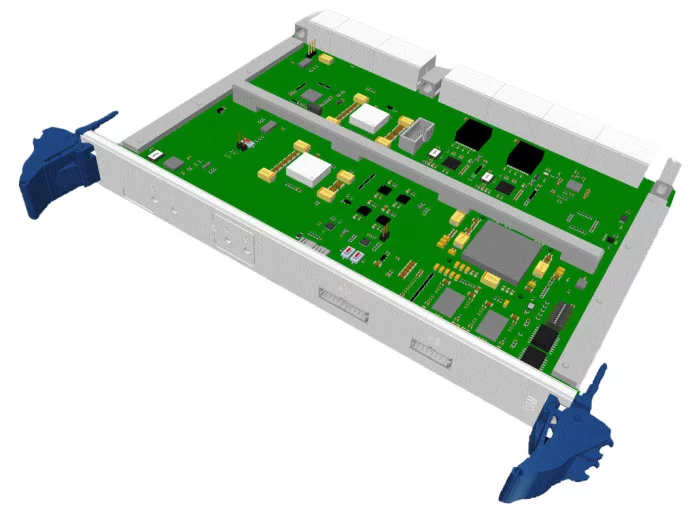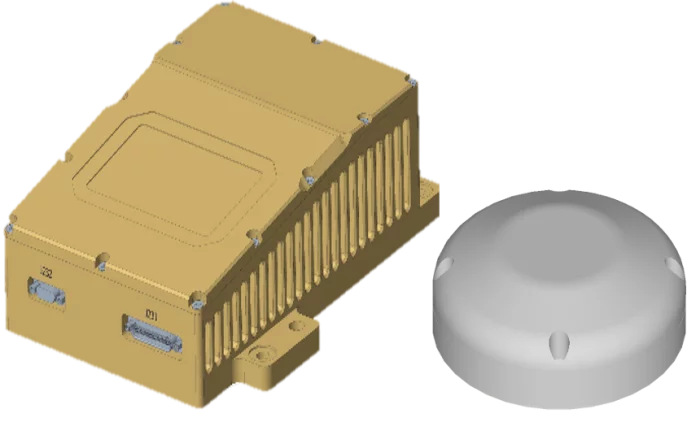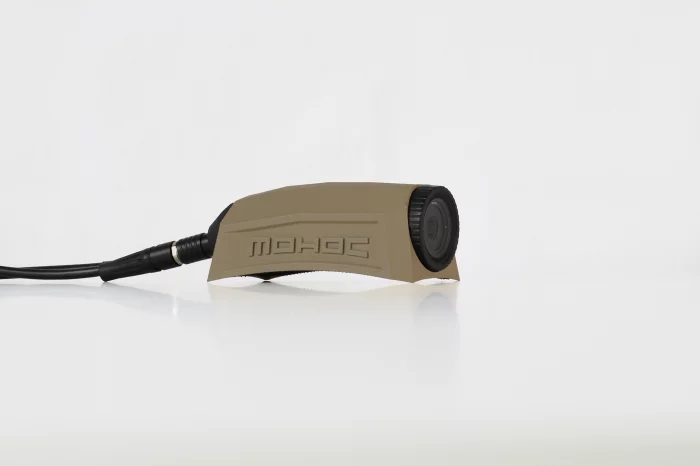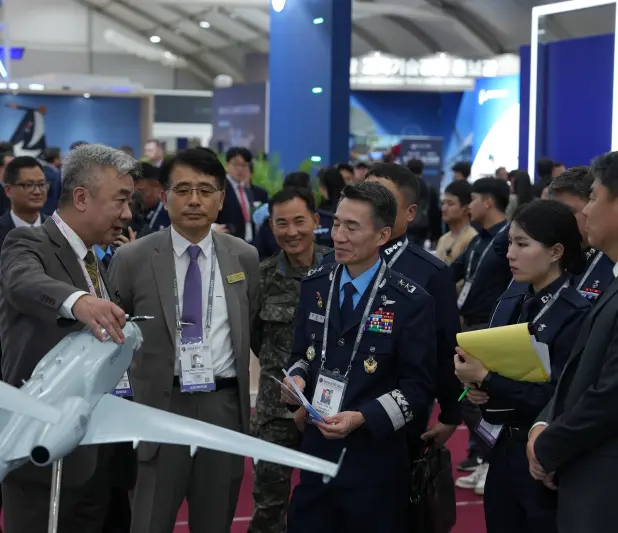한국어로 페이지 보기
Seoul ADEX 2025 Digital Directory
Plan your trip to Seoul ADEX 2025 using our state of the art Digital Directory
Register in seconds with just your email




Directory Features
To help you at the show
In-depth Exhibitor Profiles
Each exhibitor can add as many products and services as they wish, with in-depth information and specifications. This allows buyers to find what they want easily.
Self Provisioning for Exhibitors
Each exhibitor has full control of their content - to edit their company profile, upload products and enter staff details.
Plan your trip
Use the bookmarking and event planning tool to research the companies you would like to visit and the products you are interested in finding. You will be able to locate all of your saved companies on our floorplan
Advanced Search
Utilize our advanced search function to quickly locate products, people, and companies. Our state-of-the-art technology thoroughly scans all exhibitor information, delivering precise and relevant results
Interactive Floorplan
Navigate the show effortlessly with our directory. Use the floorplan to locate companies you want to visit and to find your way to onsite restaurants, toilets and site entrances and exits.
On-platform Messaging
Reach out to exhibitors and visitors directly on our platform to set up meetings, or request more information.
Some of our latest content
Companies, Products, News, Events

SeedCore
SCVPX-SSGM(Synchronous Signal Generation Module)
The SCVPX-SSGM (Synchronous Signal Generation Module) generates synchronization signals to coordinate the operation and timing of various radar system components.
It can generate synchronization signals using an internal clock, receive an external clock, or regenerate synchronization signals from external sources to maintain precise timing cycles.
A device driver program is required for configuration and operation, and the Linux driver can be downloaded from Seedcore’s product page.
Drivers for other operating systems can be developed upon request.
This module is deployed in the L-SAM multi-function radar system, providing precise timing synchronization across mission-critical subsystems.
 CATIS_700.webp)
LUMIR
Small SAR Payload, CATIS™
CATIS™ is an ultra-high-resolution, small satellite imaging radar device independently developed by Lumir. It consists of three components: the radar signal transmission/reception device SCEU, an active phased array antenna SATA, and a data downlink antenna KaPA. This X-band imaging radar device is designed for small satellites weighing 150 kg, offering an ultra-high resolution of 0.3 m. It transmits wideband RF signals to the observation area while orbiting at an altitude of 500 km and receives the reflected signals to acquire Earth observation data.
_700.webp)
Raionrobotics
RAIBO2
RAIBO2 is a quadrupedal robotic platform that uses four legs to navigate to designated locations, observe its surroundings.
Based on state-of-the-art robotic control technology, deep reinforcement learning enables highly dynamic, robust, and efficient locomotion.
Furthermore, the in-house integration of hardware and software facilitates energy and design optimization, while allowing for extensive customization.

Danam Systems Inc.
4-Element Anti-jam Receiver & 4-Element Array Antenna
ㅇKey Features
- Null Steering / Beam Forming
- 4 Channel RF Input
(changeable, 3/5/7 channel)
- Anti Jamming Performance : ≥ JSR 00 dB
- RAIM Detect and Isolation
- RS-422 (SDLC Protocols)
- High temperature resistance radome can be applied on the externally mounted antenna environment
ㅇQuality and Certification
- MIL-STD-810G
- MIL-STD-461F
- Certicicates of Defense Quality (Anti-jamming Receiver System)
View page in English




디렉터리 기능
전시회 도우미
In-depth Exhibitor Profiles
Each exhibitor can add as many products and services as they wish, with in-depth information and specifications. This allows buyers to find what they want easily.
Self Provisioning for Exhibitors
Each exhibitor has full control of their content - to edit their company profile, upload products and enter staff details.
방문 계획 수립
북마크 도구와 이벤트 플래너를 사용해 방문하고자 하는 기업과 관심 있는 제품을 검색하세요. 저장한 모든 항목을 조회할 수 있습니다
고급 검색
고급 검색 기능을 사용하여 상품, 인물, 기업의 위치를 빠르게 조회할 수 있습니다. 최첨단 기술을 통해 모든 참가사의 정보를 철저히 스캔하여 세밀하고 관련성 있는 정보를 제공합니다
상호작용 가능 평면도
디렉터리를 사용해 전시회를 손쉽게 둘러보세요. 방문하고자 하는 기업의 위치와, 행사장 내 식당, 화장실, 출입구를 평면도에서 찾을 수 있습니다.
플랫폼 내 메시지
플랫폼 상의 전시 참가사와 관람객에게 직접 연락하여 미팅을 신청하거나 추가 정보를 요청하세요.
최신 콘텐츠
기업, 상품, 뉴스, 이벤트
.jpg)
BAE Systems
Bradley Fighting Vehicle
BAE Systems has acted as the manufacturer and systems integrator of the Bradley program for over 30 years, including conducting various upgrades based on customer needs and mission requirements.
The newest Bradleys feature the latest digitized electronics for optimum situational awareness, network connectivity, and communication within the ABCT. Over the life of the Bradley program, there have been several survivability upgrades, including installation of underbelly protection and the Bradley Urban Survivability Kits (BUSK), further enhancing the safety of one of the most survivable vehicles in the fleet.
_700.webp)
HANGIL C&C. Co. Ltd
PROJECTS
Providing comprehensive training in the defense/aviation field and comprehensive logistics support system solution
[CBT/LCMS]
Analysis and application of ISD development methodology, 2D/3D modeling and animation production, application of OSMU (One Source Multi Use), application of SCORM standard for reuse and interoperability, development of CAI authoring tool
[AR/VR]
More than 100 multiple connections, omnidirectional interaction, high-precision content and processing engine, multi-platform support
[TIMS]
Pilot/mechanic training management, e-government framework, application of training history/grade/learning evaluation management function, development of other system linkage functions (C4I, DELLIS-F)
[Training Equipment]
Aerodynamic model development and HOST SW development, in-house development of image generator and data base production, aircraft aviation/navigation/system simulation and system design/integration and testing
[Avionics & ETS]
Embedded LRU and driver development, mission training, virtual radar/EO development, aircraft interworking and test evaluation
[Comprehensive Logistics Support]
Possessing ILS development capability, development of ground support equipment, mobile dehumidifier, aircraft MRO
[Motion/Control Reaction Force/Vibration System]
Provides motion, control reaction force, and vibration system for simulator system integration

DI OPTICAL Co., Ltd.
EG1
DI Optical’s new EG1 prism gunsight provides a parallax free reticle for increased accuracy and rapid target acquisition. The shaded 30mm lens provides a wide, crystal clear field of view. CNC machined from a solid billet of aircraft quality 6061-T6 aluminum, the compact EG1 is unsurpassed in ruggedness and reliability. The rotary brightness switch can be conveniently operated with a gloved hand.

HYTEC INTER KOREA Co., Ltd
MOHOC® 2
MOHOC® 2 builds on the success of the original MOHOC Camera with enhanced performance, improved usability, and modernised tactical integration.
Purpose-built for defence, law enforcement, and emergency response professionals, the MOHOC 2 retains the patented helmet-contoured design and snag-free profile while introducing upgraded imaging, improved low-light sensitivity, and extended networking capabilities.
Designed to perform in the harshest operational conditions, MOHOC 2 is IP68-rated, MIL-STD-810 tested, and capable of surviving 10 m submersion and 2 m drops. It delivers Full HD video at 60 FPS, high-resolution stills, and supports long-duration recording through external power sources.
The camera operates silently with no flash or shutter sound, and offers multiple mounting options for helmets, MOLLE, and rail systems. With support for Wi-Fi control, stealth recording, and infrared capability in the IR model, MOHOC 2 is a mission-ready video solution built for today’s connected battlefield.

 Digital Directory
Digital Directory
